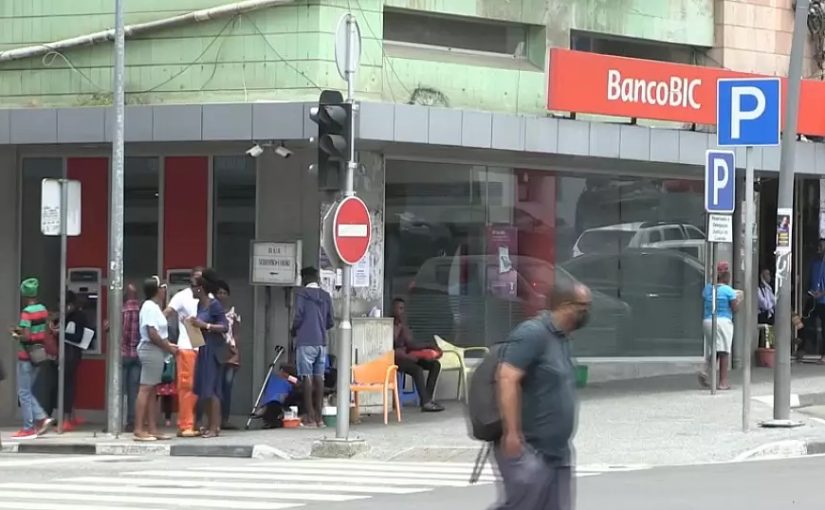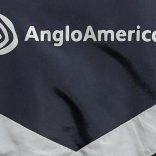Brazil Supreme Court justice breaks with colleagues on Bolsonaro case, votes to annul
Angola: Bank sector profits quadruple in 2021, new report shows

Of the 25 commercial banks registered to operate in Angola, five control over 80 percent of total banking assets, deposits, and loans according to the International Trade administration. [Image: Africa News]
- Banks in Angola had an overall positive performance last year, indicates a study carried out by consulting firm Deloitte, presented on Tuesday in Luanda.
The net profits of Angola’s banking sector increased by 295% in 2021 to 592.402 billion kwanzas (€1.3 billion), with Banco Económico (BE) recovering from the losses of recent years and leading the table.
The figures are included in the study ‘Banking under Analysis 2022’ by consultancy Deloitte, which is being presented on Tuesday in Luanda, and which analyses in detail the 25 banks that operate in the country’s financial system, taking into account their performance on several financial indicators.
The document finds that the improvement in Angola’s rating and consequent reversal of impairment losses, as well as the positive variation in the results of state-owned Banco de Poupança e Crédito (BPC), despite its still being negative, and of BE, which posted the highest profit of the banks analysed, after two years of large losses, was decisive for growth of net results.
The overall net result was, however, dampened “by the significant drop in foreign exchange results, which fell by 96% in 2021” – based on data that excluded BE, due to unavailability of information for that institution.
Excluding BPC and BE from the analysis, overall net profit in 2021 still saw a 40% increase on the previous year, clearly indicating a recovery in the sector.
The top five most profitable banks last year include Banco Económico, Banco de Fomento Angola (BFA), Banco Angolano de Investimento (BAI), Standard Bank and BIC.
Among the banks that posted losses, besides BPC, were Keve, Banco de Comércio e Indústria (BCI) – which was privatised at the end of 2021 and now belongs to the Carrinho Group – and Banco Prestígio, which had an operating loss and saw its licence revoked on 30 September.
There was also a rise in loans to customers in the overall asset structure, which rose from 17% to 19%, driven by incentive measures issued by the central bank, the National Bank of Angola (BNA). But the weight of loans in relation to total assets “continues to be very far from that seen in other global economies,” including on the African continent, the Deloitte study finds.
“The fact that interest rates remain high leads companies to resort to other types of funding sources,” adds the study, which does not include BE and Russian-owned VTB in its analysis.
In contrast, the weight of bonds and securities in Angolan banks’ results continues to be higher than in more mature markets, as a result of their significant exposure to Angolan public debt, although the ratio was down 3 percentage points on 2020.
The total value of bank assets (excluding VTB due to lack of information) was equivalent to some 17.412 billion kwanzas (€39 billion) at the end of 2021, a decrease of 5.4% on the year. This relates to the appreciation and subsequent stabilisation of the kwanza against the dollar and the euro in 2021.
The five largest banks (BAI, BFA, BIC, BPC and Atlântico) accounted for 65% of total banking assets at end-year.
Shareholders equity stood at 2.076 billion kwanzas (€4 billion) at the end of 2021, up 20% on the year and 293% on 2014.
The study concludes that, given the large number of banks competing in the Angolan financial system, they should define “business models that allow them to ensure differentiated positioning in the market, both in terms of customer segmentation, as well as the products and services they provide.”
It also noted that the issue of sustainability, both in terms of compliance with specific indicators or ratios and regulatory reporting requirements and in matters related to ESG (Environmental, Social and Governance) criteria, is an increasingly urgent matter.
Meanwhile, in some cases, the inability of shareholders to meet capital requirements has prompted the BNA to withdraw some banking licenses – with Prestige being the most recent case.
The study also notes expectations regarding implementation of the Recovery and Restructuring Plan for BE, which it notes is “a systemic bank” and one that should once again occupy a prominent position in the economy.
It also notes that the regulator, “continues to take measures aimed at the sustainability of the Angolan financial system” such as increasing the minimum required share capital and approving the regulations of the banking sector Resolution Fund that is to be set up with contributions from the banks and the Angolan state, in order to guard against systemic risks.
“The BNA has been taking on a more intrusive role in supervising the banking sector, with the opening of contravention proceedings for non-compliance with regulations in force, specifically foreign exchange legislation, which poses challenges for banks to strengthen their internal control systems,” the report notes.












Leave a Reply
Be the First to Comment!
You must be logged in to post a comment.
You must be logged in to post a comment.